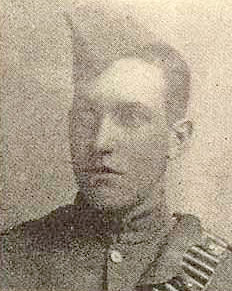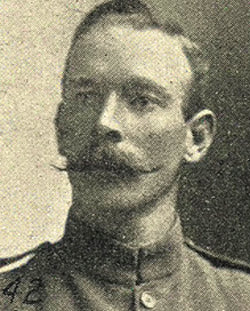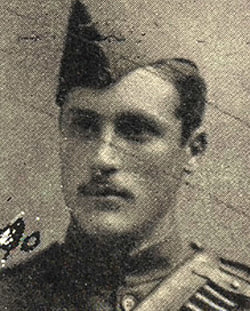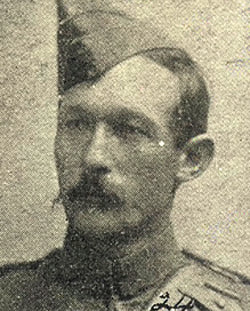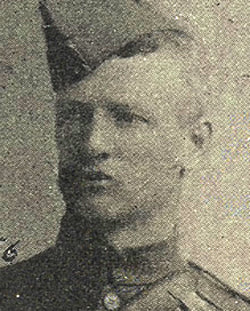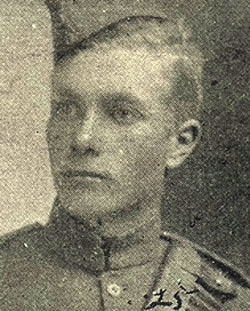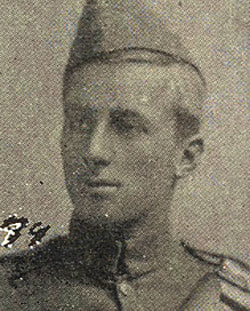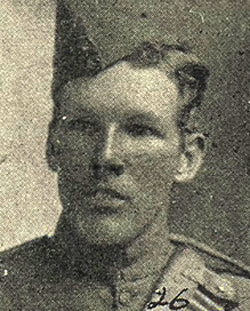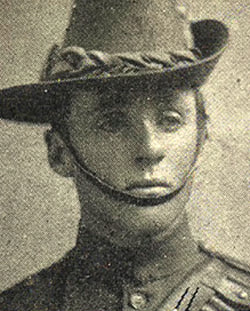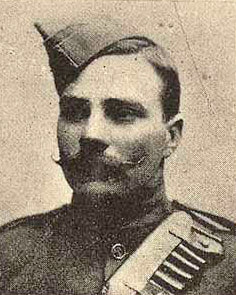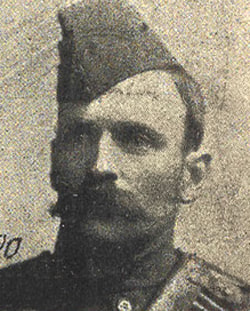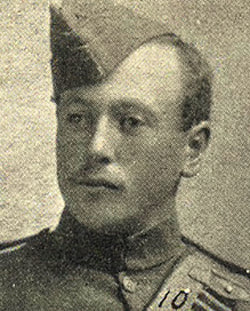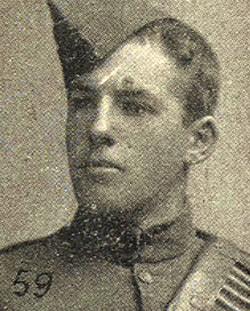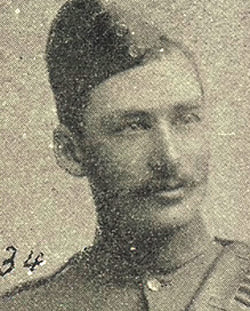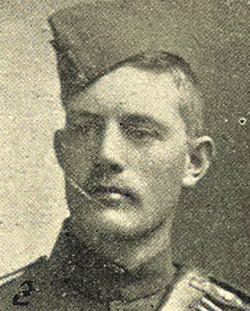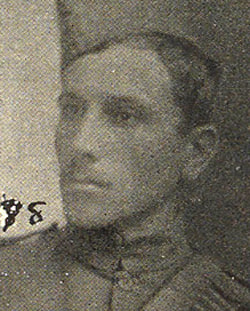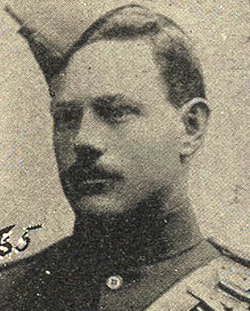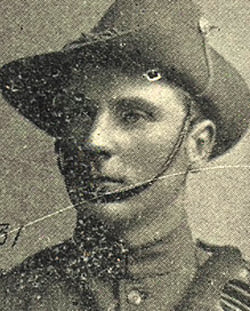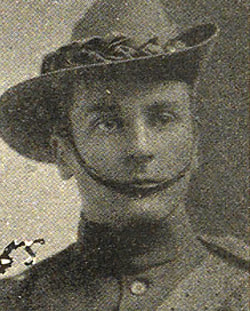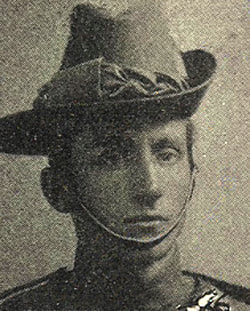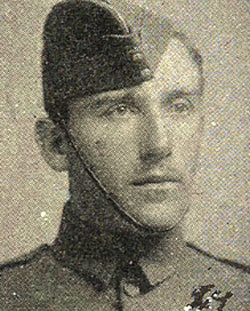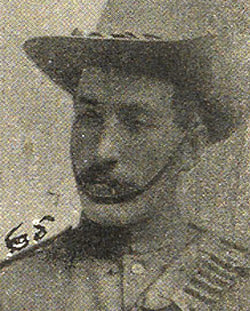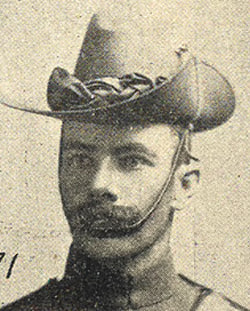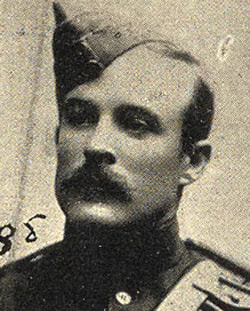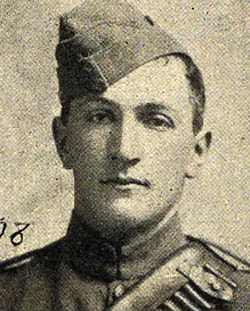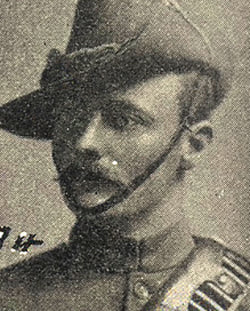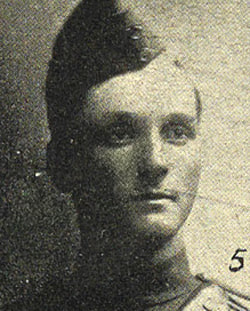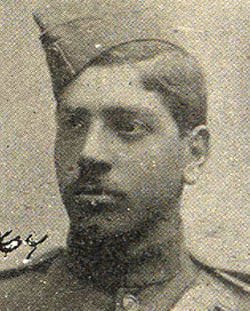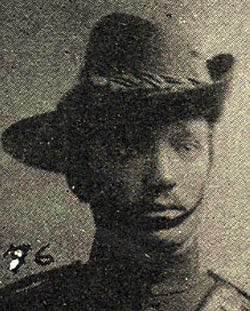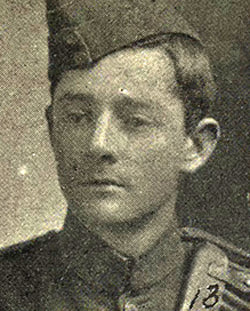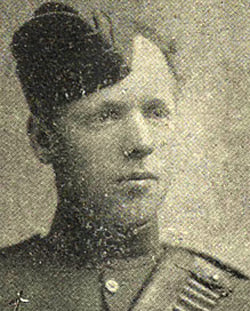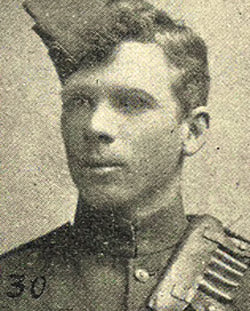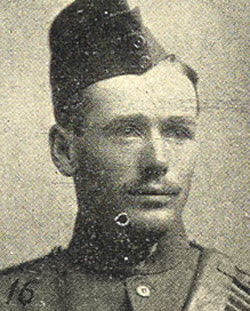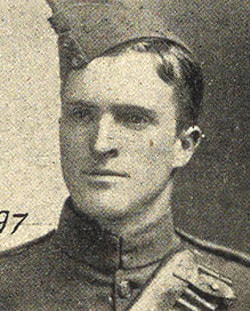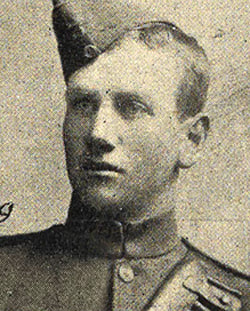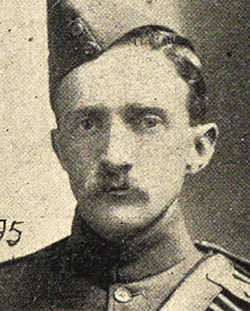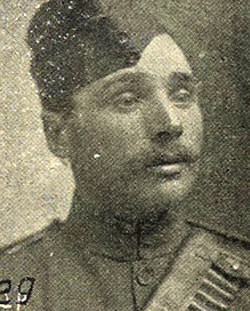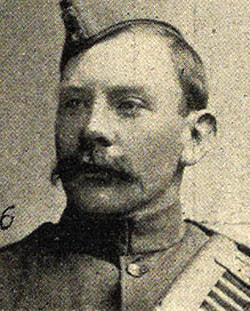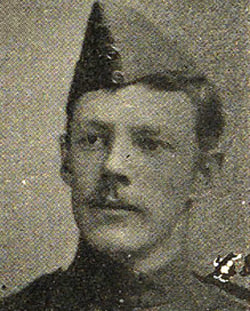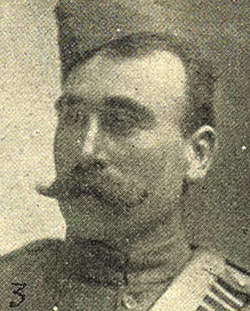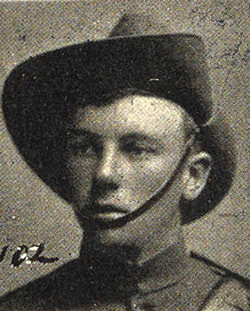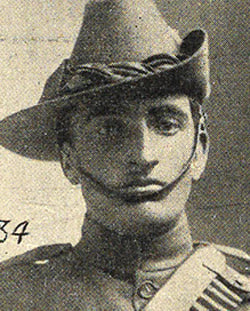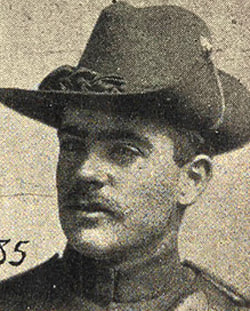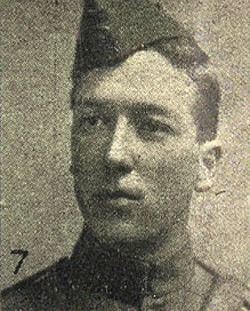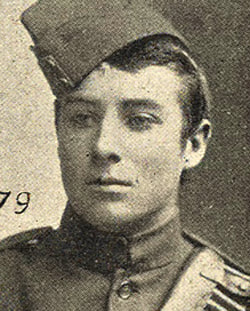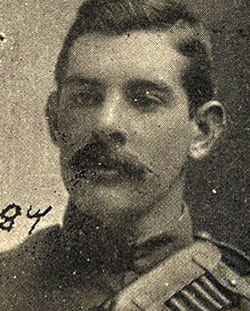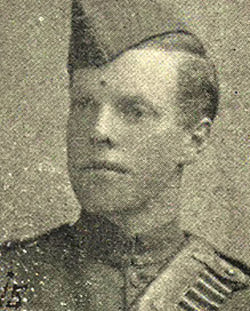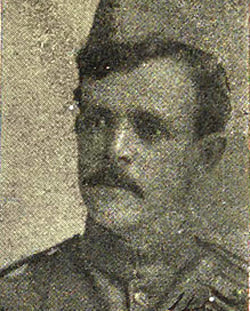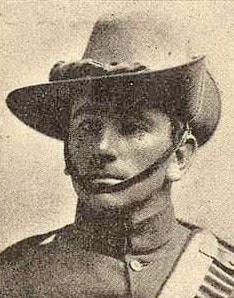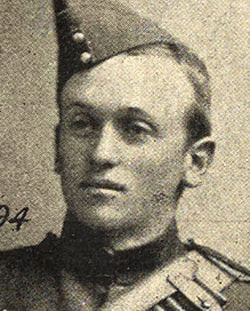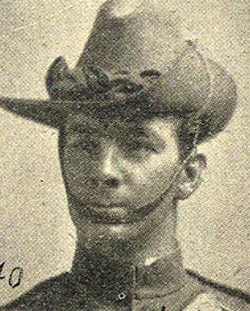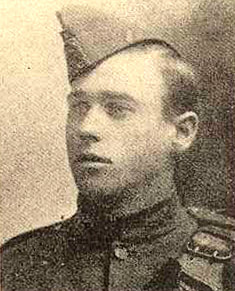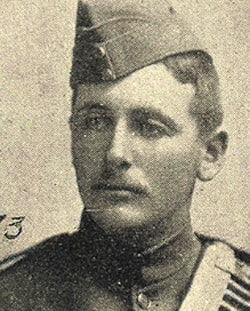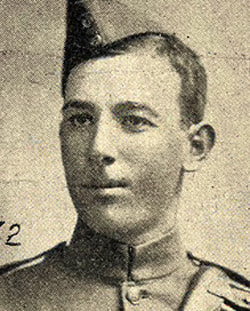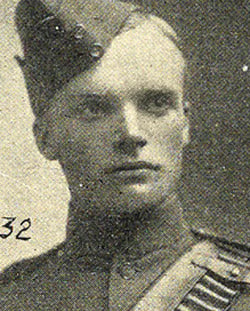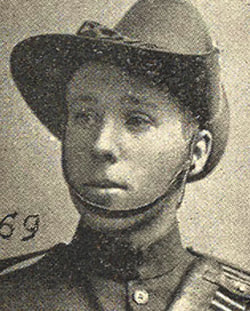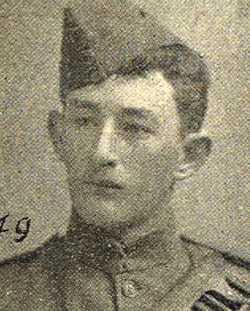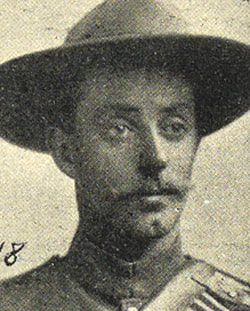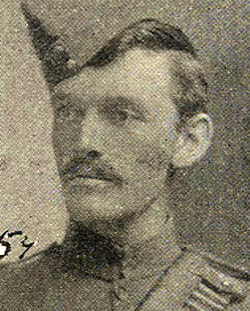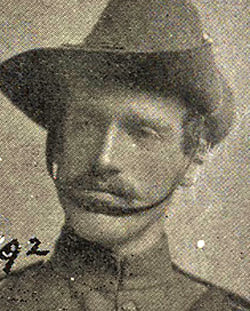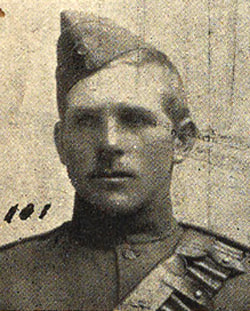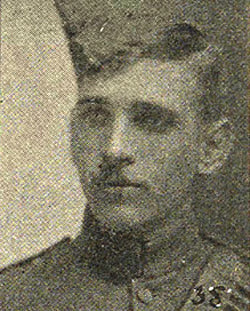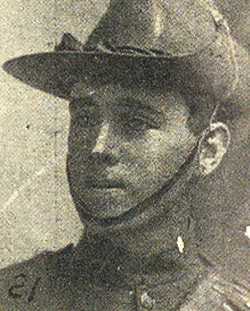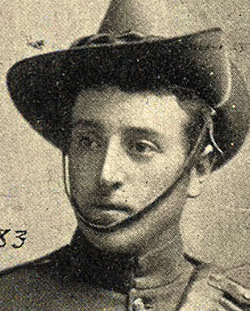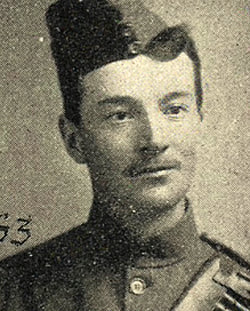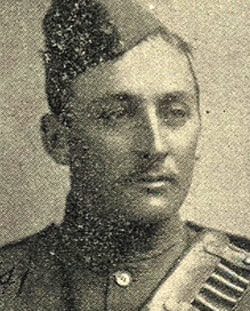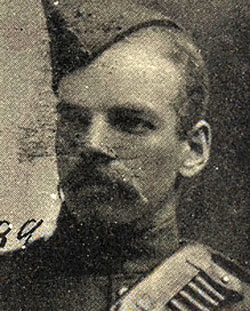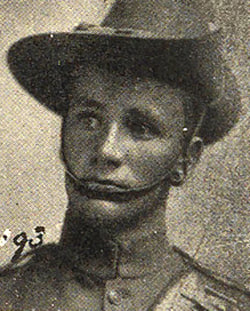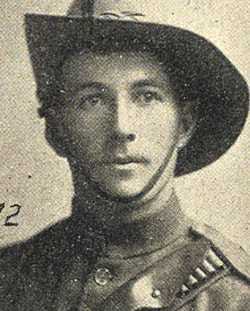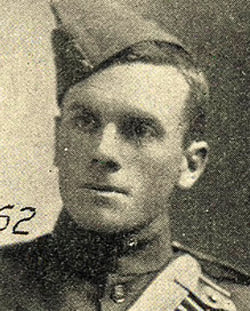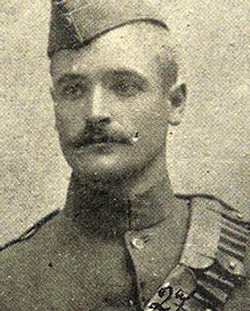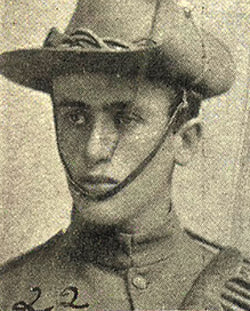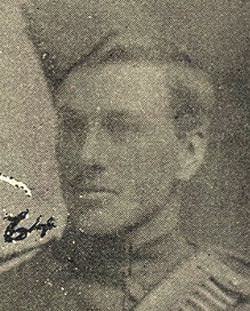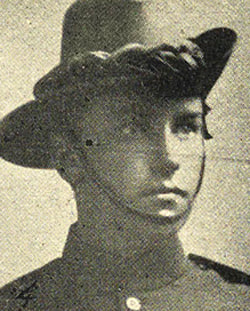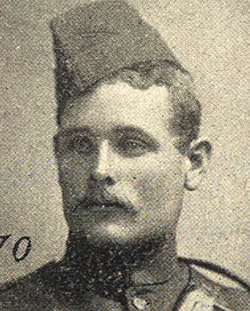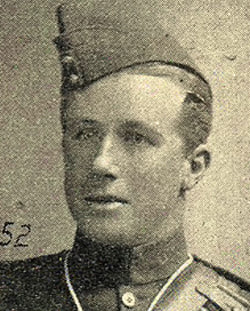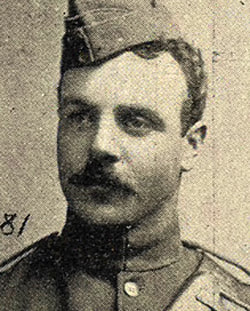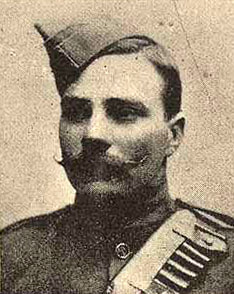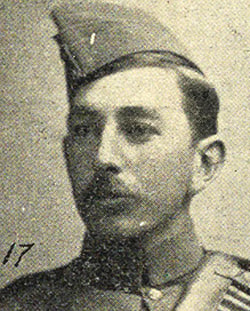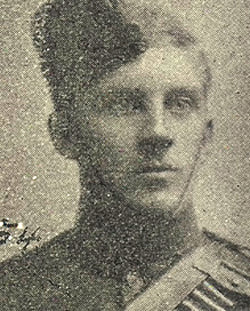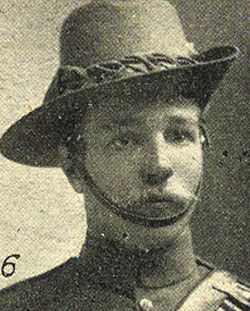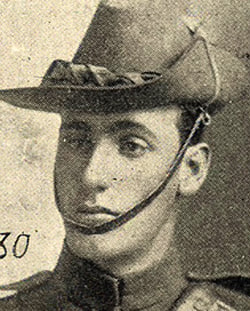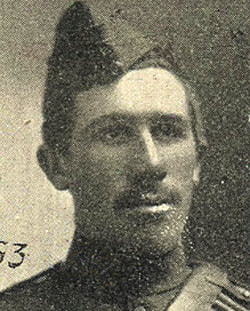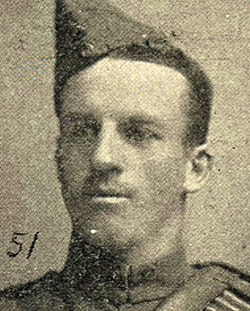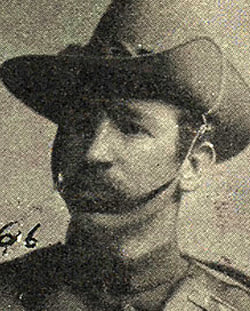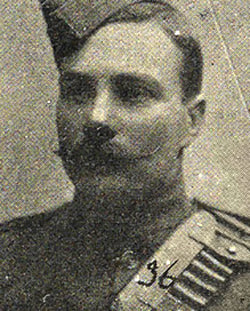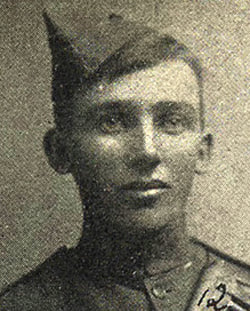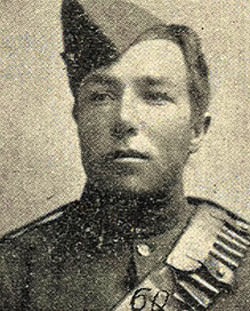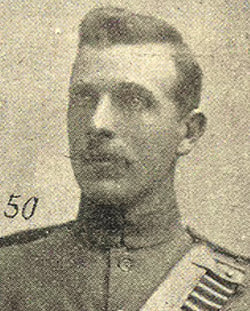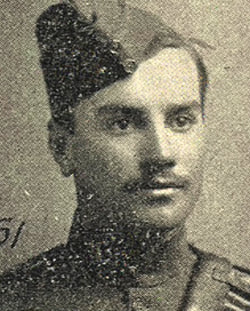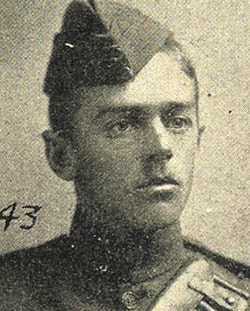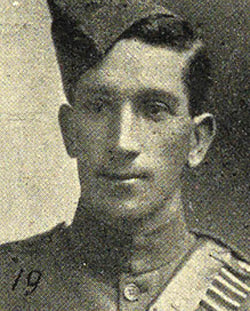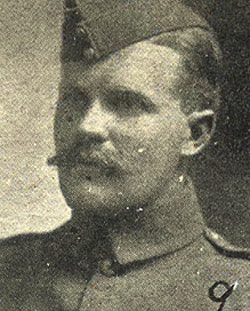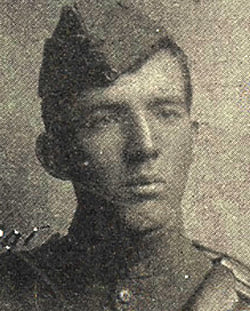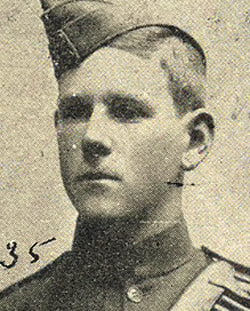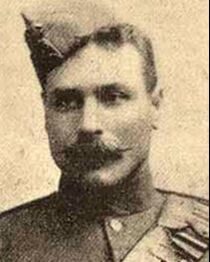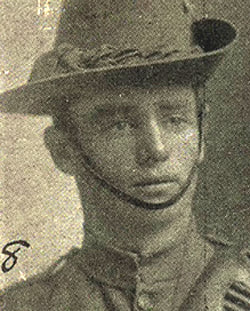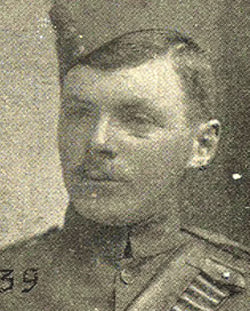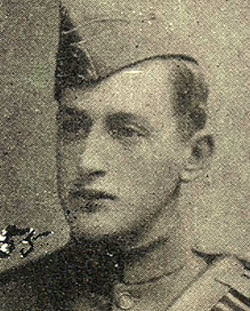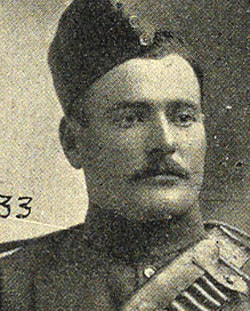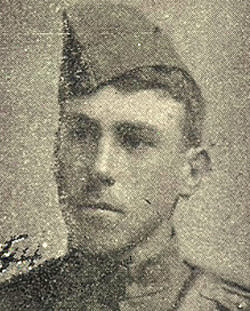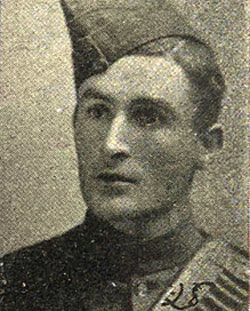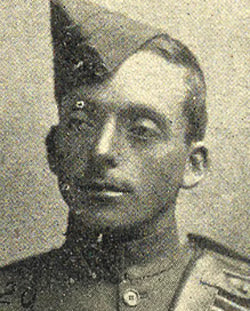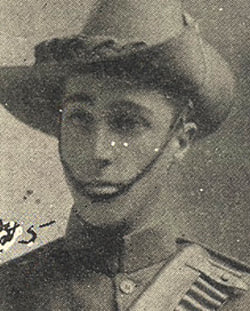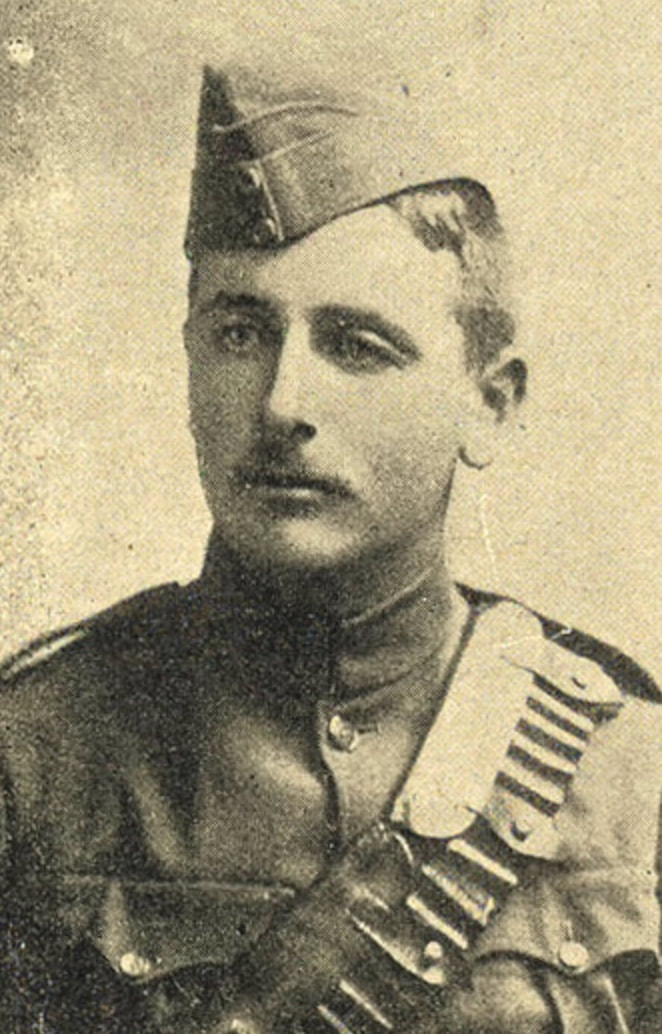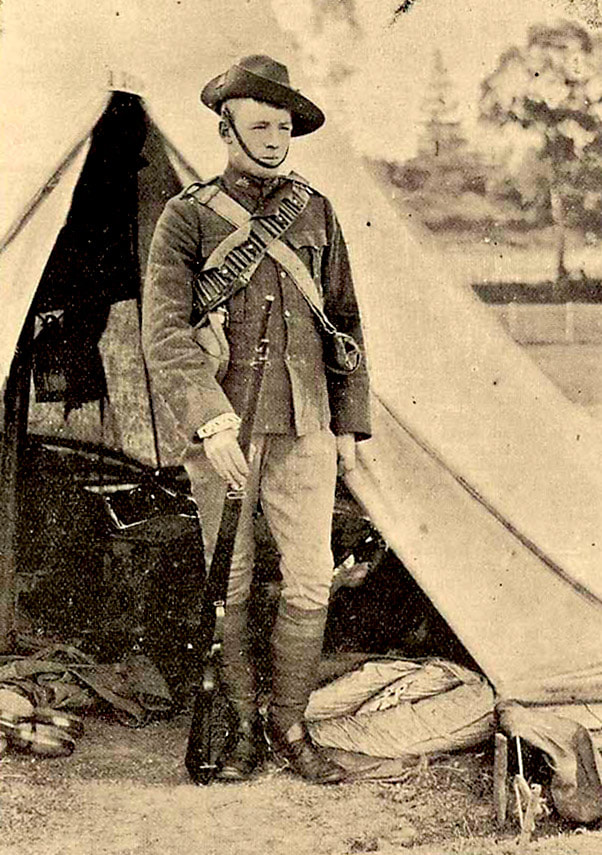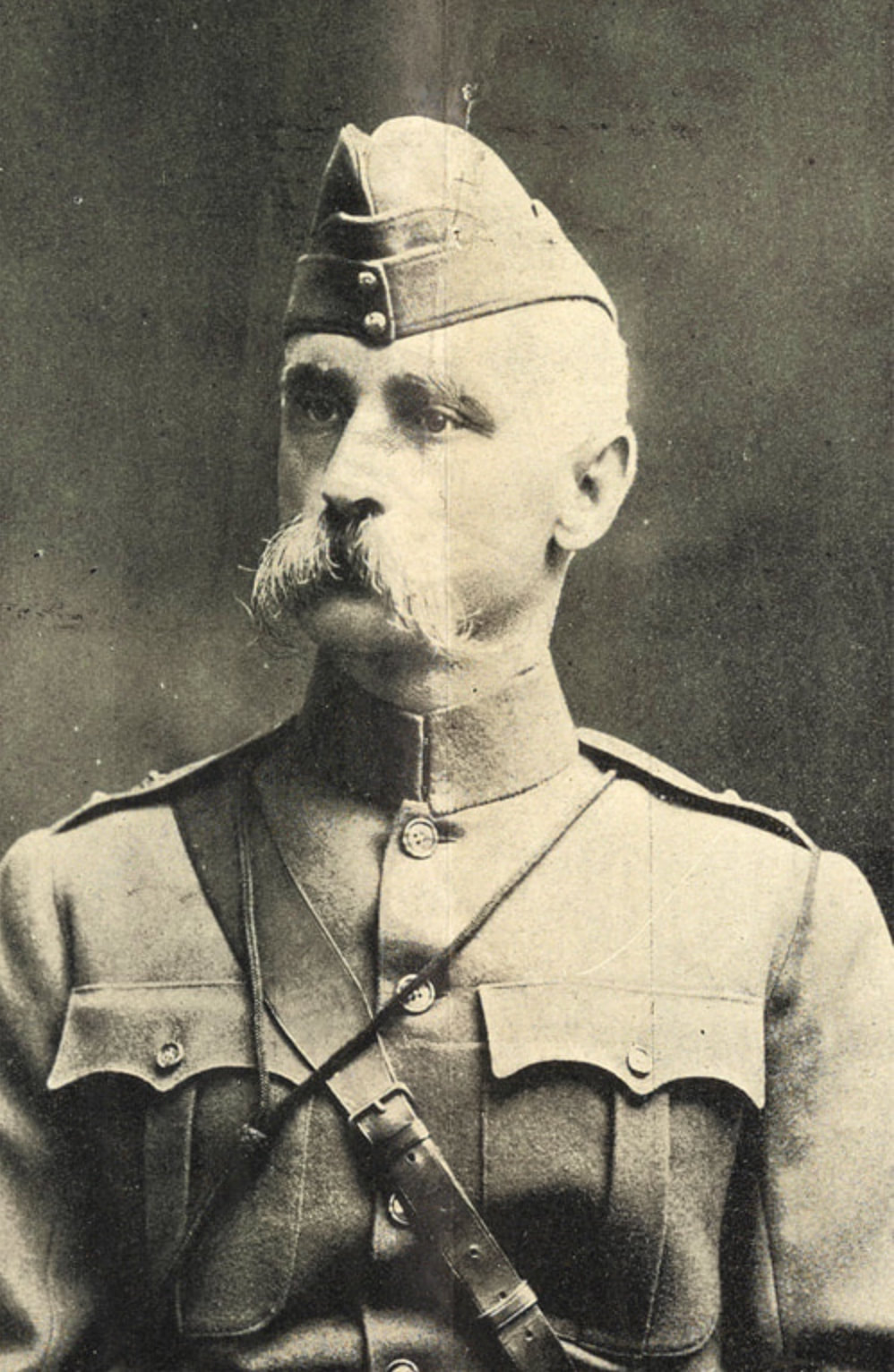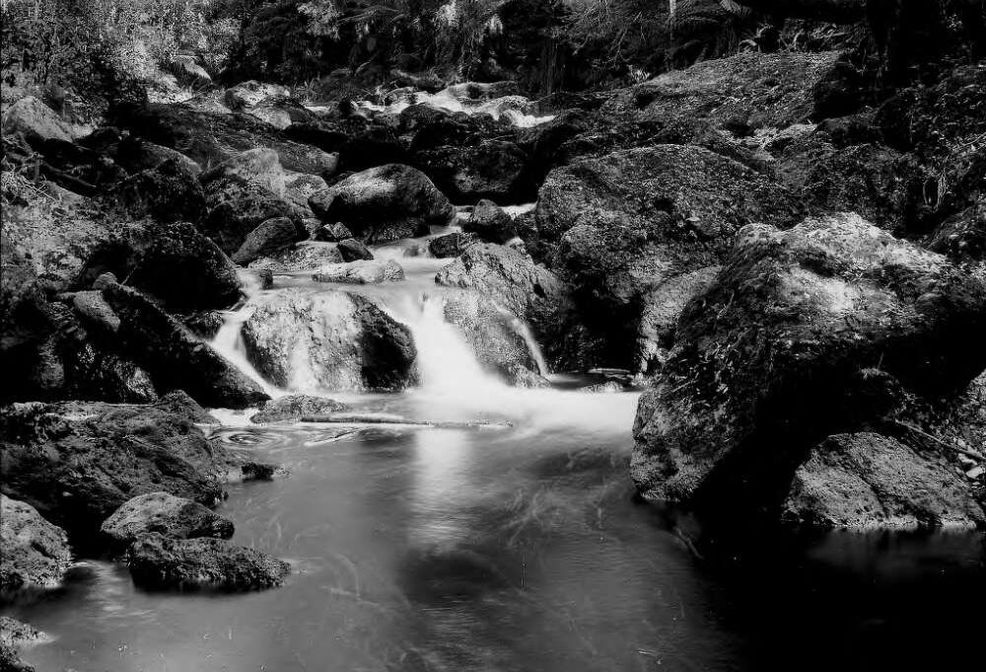TASMANIANS IN THE ANGLO BOER WAR: sixth contingent
The following images are thumbnails only having been reduced to minimal size. If you wish to view the image in its original format, please refer to the Weekly Courier and Tasmanian Mail at LINC.
No full size images are given on this website due to uncertain copyright restrictions. These thumbnails are intended simply as a preview indexed to the relevant Weekly Courier issue date and page.
No full size images are given on this website due to uncertain copyright restrictions. These thumbnails are intended simply as a preview indexed to the relevant Weekly Courier issue date and page.
Third Battalion Australian Commonwealth Horse
Departed 8 April 1902, returned 9 August 1902
|
Leonard Guy ABLE
|
Sgt Major John Edward ADAMS
|
John Joseph AITCHISON
|
William AITCHISON
|
Herbert Edward ANDREWS
|
BADCOCK
|
Charles BAILEY
|
Walter Charles Henry BARBER
|
|
Charles BELL
|
Albert Edward BRAMBLEY
|
Thomas Patrick BRANNAGAN
|
Percy Lauss BRANSGROVE
|
George BREEN
|
Michael BRENNAN
|
T BROWN
|
A E BRUMBY
|
|
John Henry BRYAN
|
Edward Charles BURTON
|
Edward Charles BURTON
|
P BUTLER
|
Lt Cyril Roderick Alleyne CHALMERS
|
G M CLARKE
|
Sgt James Mortyn CLARKE
|
Sgt Arthur Charles COOPER
|
|
Corporal CROSBY
|
Charles CUNDY
|
Lance Cpl William Vernon DeLITTLE
|
Robert C DOUGLAS
|
Cpl Richard Darby DUKE
|
Henry William EDWARDS
|
A EVANS
|
C A FACY
|
|
Alfred Joseph FARLEY
|
E FARLEY
|
Sgt Benjamin Furney FERGUSON
|
Charles Vernon FERGUSON
|
Daniel Newbury FIELD
|
Frank Percy FITZGERALD
|
Lance Cpl Bertie Cecil FOX
|
C F GIBSON
|
|
N GIBSON
|
C GILL
|
H GILL
|
Arthur GILLOW
|
Herbert GOSS
|
R GREEN
|
Lance Cpl Robert William GUEST
|
Archibald Victor HAMILTON
|
|
George Henry HANNIGAN
|
Samuel HAWKES
|
Rupert William HEADLAM
|
Ernest George HERBERT
|
James Alexander HERON
|
Vincent Lade HODGMAN
|
HOLLOWAY
|
Garnet John HOPE
|
|
William Francis HORSELY
|
Leslie HUSBAND
|
Cpl Charles Arthur JACKSON
|
John JORDAN
|
Corporal JUDGE
|
Martin KEOGH
|
William LAIRD
|
Gilbert Rumney LAMB
|
|
Arthur LEWIS
|
Benjamin LEWIS
|
LINDLEY
|
P B LYNE
|
F MANNING
|
G MARSHALL
|
Lance Sgt Lionel John MATTHEWS
|
William John McLOUGHLIN
|
|
Cpl Godfrey O MITCHELL
|
Esrom MORSE
|
T O NEWMAN
|
Walter NEWTON
|
Lance Cpl Eustace Amstey PAGE
|
Charles Herbert PAUL
|
Bugler Wroughton John PEGUS
|
Cpl Charles Francis PENNEFATHER
|
|
Lance Cpl Percy George PHILLIPS
|
PROCTOR
|
Lance Cpl George Morres RAPP
|
William REYNOLDS
|
Benjamin Horace ROBERTS
|
William Lynton ROGERS
|
RYAN
|
Albert SMITH
|
|
N T SMITH
|
A B SMYTHE
|
Harold Sydney STREET
|
Robert Charles Andrew STUART
|
Henry SWAN
|
Lieutenant Ronald Arthur SWAN
|
Cecil James THOMPSON
|
Norman THOMPSON
|
|
Benjamin Castles TRIBOLET
|
Joseph TURNER
|
Henry VENTON
|
Louis VINCE
|
J A WALKER
|
W WALTERS
|
David Samuel WEBSTER
|
Alfred WILLIAMS
|
|
Gordon WILSON
|
Thomas Alexander Scott WILSON
|
|
VINCENT HODGMAN AND CHARLES CUNDY
Trooper Vincent Hodgman was one two Tasmanians who succumbed to pneumonia on the return voyage from South Africa. Hodgman was a 20 year old miner from St Helen's while the other man, Trooper Charles Cundy, was a farm labourer aged 21. The two died within 24 hours of leaving Albany, Western Australia, onboard the Drayton Grange en route to Melbourne.
With three other deaths onboard the Drayton Grange, two from New South Wales and one from Victoria, the public was naturally outraged and subsequently a Royal Commission was held. Due to overcrowding and unhygienic conditions, some 17 sailors and soldiers died onboard the ship between Durban, South Africa, and Albany. A large number of the troops also had to be carried off the ship after reaching their destination. Trooper Albert Brown of Somerset placed the blame solely on the transport officers at Durban for placing over 2,000 men on a troopship fit to accommodate just 1,500. He also placed the blame on the lack of control and discipline by the officers during the long voyage on an overcrowded ship, and aided by rough seas, with cold winds and heavy rains made the inroads of the various diseases and sickness so easy. Brown gave a lucid account of the callous treatment meted out while sick to Trooper Cundy. He grew worse and several of his mates fearing he would die, carried him to the doctor in a blanket. The medical officer took one look at him and ordered him to walk around the hospital, exclaiming: "You're only shamming and men like you should be thrown overboard." Two days later Trooper Cundy was dead. The hospital accommodation was wretched and Brown stated that more room should have been found for the sick in the officers' spacious quarters. Many of the officers were left behind at Durban because of want of accommodation onboard. Brown believed that if the sick were landed at Albany lives would not have been needlessly sacrificed, but the orders from the Western Australian Government were to the effect that infectious cases would not be allowed onshore. |
|
JAMES RAYWOOD THOLLER
Trooper Troller of the E Contingent returned from South Africa on the Pateena on 9 August 1902, reaching his hometown the following morning. The following describes the reception he received on his return.
"The reception took the form of a social evening and supper, which was held in Miss Griffiths' large dining room. The ladies of the district tastefully decorated the room with tree ferns and flags of every colour. The supper was laid on two large tables, the decorations consisting of daffodils and narcissi in tall glass vases and tiny pots of violets with their foliage. Mr Griffiths said that Gravelly Beach was proud to welcome their soldier home again and assured him that he was not only a credit to Tasmania but also to his comrades-in-arms. He trusted that he would be spared to enjoy every happiness and a long rest ere he would be called upon to take up arms for his country again. He then asked those present to join in giving our soldier a hearty welcome, the ladies by waving their handkerchiefs and the gentlemen by clapping hands. "Supper was then served and the singing of the national anthem brought a pleasant evening to a close." |
|
ERNEST TOWNSHEND WALLACK
Lieutenant Colonel Wallack was born in England and while attached to the military there was sent on special service with the Rhodesian Field Force and First Division in the South African War. A short time later he was appointed by the Australian Government to command the third battalion of the Australian contingent, comprising three companies from New South Wales, one company from Queensland and one company from Tasmania. He had previously commanded the Tasmanian Bushmen.
After the Anglo Boer War, Wallack became Acting Commandant in Tasmania from 1903 to 1904. In 1905 he became Commandant of South Australia, then he became successively Adjutant-General and member of the Military Board and Commandant of the Third Military District. During the FIrst World War, he was connected with the AIF transport service and was on Special Service in Egypt. In 1918 Wallack retired to Tasmania and then moved to Nelson in New Zealand in 1923. He died there in 1932. |
Nominal Roll
The following link is an excerpt from the Official Records of the Australian Military Contingents to the War in South Africa compiled by Lieutenant Corporal Pembroke Lathrop Murray in 1911. It includes full names, rank, promotions, honours and deaths specific to the State of Tasmania for the 3rd Battalion Australian Commonwealth Horse regiment.
Please note that not all names are listed in the Australian Military Contingents to the War in South Africa. If you fail to find the person you're looking for, you can search the complete register by surname at the following website: Australians in the Boer War.

